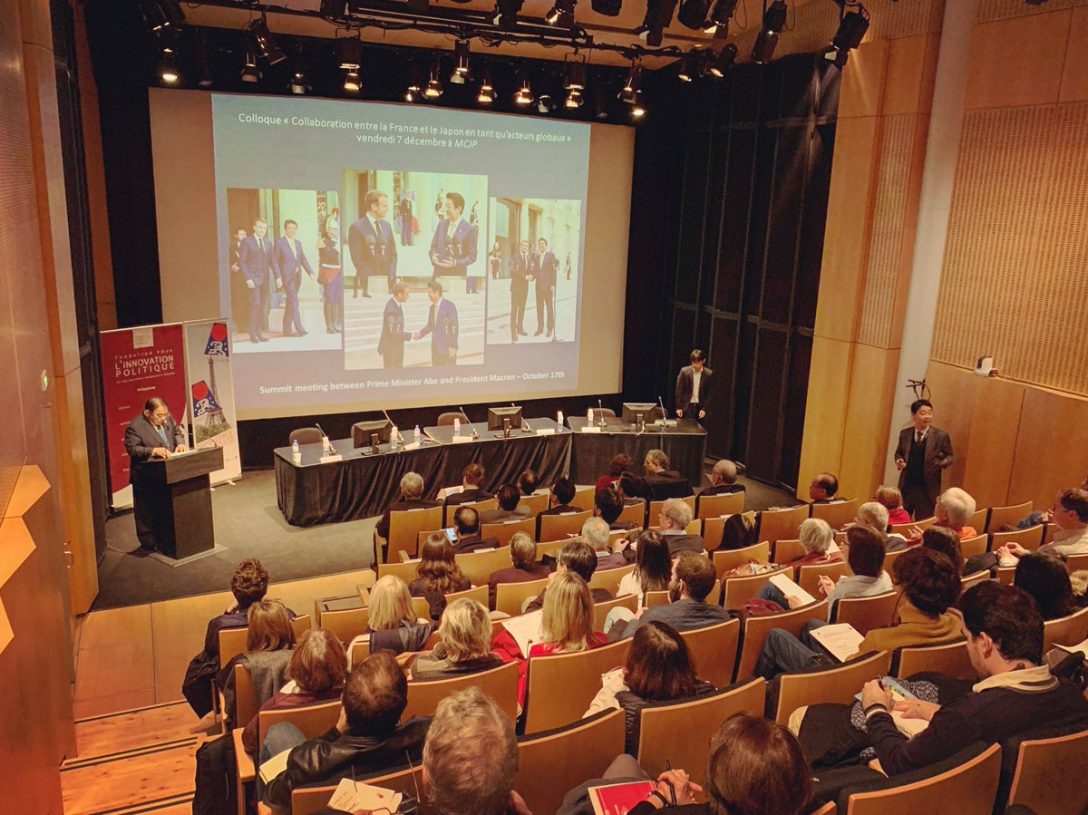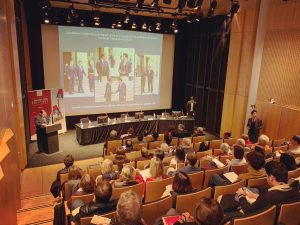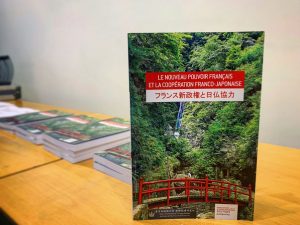
France and Japan are celebrating this year the 160th anniversary of the establishment of their diplomatic relations. How do these two countries deal with global problems such as terrorism, security, and the issue of migrants and refugees? In such a context, what is the power of public diplomacy? The Fondation pour l’innovation politique co-organised with the Japan Foundation and the Franco-Japanese Sasakawa Foundation the fifth edition of the symposium on “Collaboration between Japan and France as global actors”, on 7 and 8 December 2018, at the Maison de la Culture du Japon.
This symposium reflected on the possibilities of Franco-Japanese cooperation on the international scene. At the end of the day, a book edited by the Fondation pour l’innovation politique, which includes the proceedings of the previous symposium in Tokyo in 2017, was handed out to the audience.
Ambassador Masato Kitera opened the conference: “On the occasion of the 160th anniversary of the establishment of diplomatic relations between Japan and France, all the refinement of Japanese culture is presented in Paris.”
1st session: Japan’s diplomacy in Asia
Japan and the Korean Peninsula
Hajime Izumi, Professor at the International University of Tokyo
Japan-U.S.-China relations today
Ryosei Kokubun, President of the National Defense Academy
Japan-U.S. Relations Today
Akihiko Tanaka, President of the National Graduate Institute for Policy Studies (GRIPS)
Japan’s defense policy
Guibourg Delamotte, Professor at INALCO
2nd Session : Politics in Japan Today
Politics in Japan today
Naoto Nonaka, Professor at Gakushuin University
Politics in France and Japan – A Comparative Perspective
Pascal Perrineau, Professor at Sciences Po CEVIPOF
3rd Session : Global issues and Franco-Japanese cooperation
The populist phenomenon
Dominique Reynié, Executive Director of the Fondation pour l’innovation politique
As Dominique Reynié pointed out while analysing the populist phenomenon, “both in France and Japan, our societies are faced with common challenges such as the demographic issue and migratory flows. We need to think about them together in order to imagine our answers. Populism appears in phases of historical upheavals that challenge existing institutions or established political forces. In France, we have a leader with no movement behind them, in front of a movement that has no leader to guide them. This says a lot about the deep crisis our country is going through. The unpopularity of the President of the Republic is certainly spectacular, but so is that of the opposition. Macron is not the President responsible for the mandatory taxes put in place before his tenure, but the heir of these policies”.
Pascal Perrineau continued this argument by declaring “as the social and economic revolt of the Yellow Vests shows, French society seems to have become one of total mistrust. Mistrust towards elected officials, the media, companies and banks”.

French-Japanese cooperation in Africa
Sadaharu Kataoka, Professor at Waseda University
Immigration and Foreigners in Japan and France
Kazunari Sakai, Professor at the University of Kobe
4th session: Cultural diplomacy
Cultural diplomacy theory and the history of Japanese cultural diplomacy
Hirotaka Watanabe, Professor at the Tokyo University of Foreign Studies
According to Professor Watanabe, “when the French think of Japanese culture, they have manga, fashion or food more in mind rather than the humanities. We need to develop academic collaborations like the one we have today”.
From outreach to influence: France’s cultural diplomacy in globalisation
Laurence Badel, Professor at the University of Paris 1


No comments.